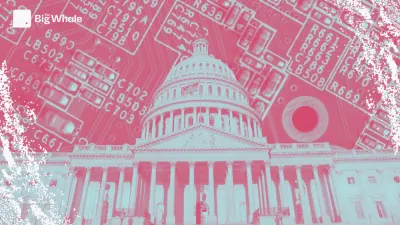TBW - Genius Act and Clarity Act: The United States adopts 2 historic pieces of legislation on cryptos

This is a historic turning point for the digital asset industry in the United States. On Thursday, the US House of Representatives in turn passed the GENIUS Act and the Clarity Act, two laws that create a clear framework for stablecoins and the division of roles between regulators (SEC/CFTC).
The text, already approved by the Senate with a large majority (68 votes to 30), must now be signed into law by Donald Trump - a formality, given the current president's stance in favour of pro-crypto regulation.
In a rapidly expanding stablecoin market ($250 billion in capitalisation according to the latest figures), the GENIUS Act represents a turning point. The legislation creates the status of "authorised federal issuer of payment stablecoin", with strict requirements: 100% coverage by liquid assets (Treasury bills, cash, Fed deposits), a ban on rehypothecating reserves, monthly publication of audited reports, and a mandatory independent annual audit.
>> Download The Stablecoin Briefing (Q2 2025)
Objective: to establish a level of transparency and security equivalent to that of the banking sector, without curbing innovation. A balance welcomed by a large part of the crypto ecosystem.
Federalisation: the end of fragmented regimes
But the text's major innovation lies in the introduction of a federal pre-emption principle. Until now, stablecoin issuers had to obtain a licence in each state in which they operated, under the cumbersome and heterogeneous framework of money transmitter licences. From now on, a federal licence will suffice to operate throughout the US.
The text also provides for a national "passport" for players licensed at state level, provided that they remain below a threshold of $10 billion in outstandings and that their local supervision is "substantially equivalent" to that of the OCC.
Another strategic point: the law allows the Treasury Department to block the use of foreign stablecoins deemed non-compliant, a measure clearly directed against players such as Tether, which still largely dominates the global market. In this way, the US administration intends to regain control of the digital dollar infrastructure and impose its transparency standards on a global scale.
Heavy penalties for offenders
The text provides for significant penalties for any unauthorised issuance: up to a $1 million fine per day, plus five years' imprisonment. This sends out a clear message: the period of regulatory uncertainty is coming to an end.
A difficult passage through the House, but a strong signal
The passage of the text through the House was not without its tensions. A group of Republican members, opposed to any extension of federal control over decentralised financial markets, attempted to introduce amendments to limit the scope of the text. This rebellion, described as a "crypto-conservative rebellion", led to one of the longest votes in recent congressional history, according to Fox Business. But in the end, the text passed with bipartisan support, proof of the growing importance of the subject on the US political agenda.
Crypto industry exults, markets react
On the industry side, the reaction was immediate. Jeremy Allaire, CEO of Circle, hailed a "seminal moment for regulated stablecoins", seeing the passage of the GENIUS Act as an opportunity to accelerate institutional adoption of the USDC and position the US as a global leader.
The markets followed suit: shares in companies such as Circle, Coinbase and Paxos surged. Some analysts are already talking about the "institutionalisation of stablecoin", which could attract trillions of dollars in assets over the next few years.
Towards international regulatory pressure
On a geopolitical level, the effects of the GENIUS Act could extend beyond US borders. Faced with a clear, attractive framework that is now operational in the United States, Europe and Asia could be forced to harmonise their regulations to avoid a flight of talent and capital. Conversely, the EU, with its MiCA regulation, still severely restricts the use of stablecoins denominated in euros, creating a worrying regulatory imbalance.
Regulation as a lever of power
Beyond the technical aspects, the GENIUS Act embodies a strong strategic choice: to regulate stablecoins without stifling them, to strengthen the dollar's sovereignty over blockchains. In this context, regulation becomes an instrument of economic and geopolitical power, and not simply a compliance tool.
>> Discover our dashboard dedicated to stablecoins



